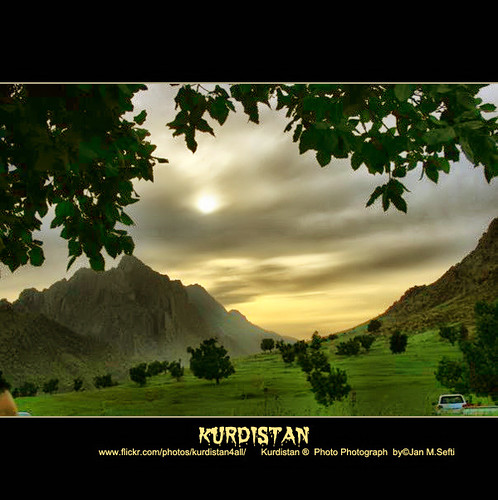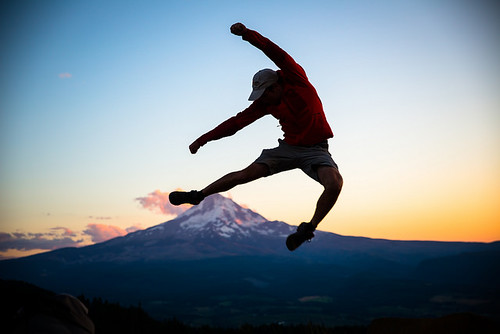Have you ever considered visiting a place that’s usually headlined for conflict and unrest? Well, I did just that, and it turned out to be one of the most enlightening experiences of my life. I’m a 36-year-old American, and I recently returned from a 10-day journey through Iraq, including stops in Baghdad, Babylon, Najaf, Karbala, Nasiriya, Samarra, Mosul, and Erbil. I traveled with a small group of fellow Americans, a Brit, and an Australian, and what we found was a country that defied our expectations at every turn.
Discovering the Multifaceted Iraq: Safety, Challenges, and Unique Experiences
Our group was diverse, mostly women around my age, and we were led by an Iraqi driver, with both Iraqi and American guides. Despite the diversity of our group, we shared a common sentiment by the end of our trip: Iraq was one of the safest countries we had ever visited. This might sound naive, especially considering the country’s recent history, but it’s the truth as we experienced it.
In Baghdad and Erbil, I had the opportunity to wander on my own, and not once did I feel concerned for my safety. The biggest threat I encountered was the growing crowds that formed around me as I attempted to speak basic Arabic. Iraqis were eager to interact, often asking for selfies, which turned into a fun and memorable part of the trip.
This isn’t to say that the security situation in Iraq isn’t complex. During my stay, Iran launched drones that flew over my hotel in Karbala, a holy city for Shia Muslims. It was a stark reminder that Iraq is a country caught between Iran and the West, with missiles being launched at, from, and over it. This tension was palpable, yet it didn’t translate into a feeling of danger on the streets.
In contrast to the south, Iraqi Kurdistan presented a different narrative. The 2003 U.S.-led invasion, rather than bringing economic ruin and instability, ushered in an economic boom and united feuding Kurdish political parties. The sentiment towards the U.S. in Iraqi Kurdistan is overwhelmingly positive, with a staggering 79% of adults approving of U.S. leadership, making it the most pro-American entity in the Middle East.
The relative safety in the Kurdish north is remarkable. Since the Gulf War, U.S. actions have promoted Iraqi Kurdistan’s autonomy, contributing to its stability and prosperity. In 2022, 88% of adults in Iraqi Kurdistan reported feeling safe walking alone at night, a sentiment that rivals that of low-crime Gulf states and is significantly higher than the rest of Iraq.
Iraqi Kurdistan has also become a sanctuary for the country’s embattled minorities, particularly its ancient Christian communities. Once estimated at 1.5 million before the war, as few as 200,000 Iraqi Christians remain, with about half now living in the Kurdish region. The region’s reputation as a safe haven is reflected in the 84% of residents who say their city or area is a good place for ethnic or racial minorities, a figure that is significantly higher than anywhere else in the Middle East.
Despite these positives, economic challenges are emerging in Iraqi Kurdistan. The once-clear economic distinction between the Kurdish region and the rest of Iraq is fading. Residents now express similar concerns about job availability and satisfaction with what they can buy and do. This shift is indicative of a broader trend: as Iraq proper improves after decades of conflict, the Kurdish north faces the challenge of maintaining its exceptional status.
The political and economic gains in Iraqi Kurdistan are continually tested. Shia militias, resurgent Islamic State cells, and Iran have all posed threats since the defeat of IS in 2017. Economic discontent simmers, fueled by unreliable public services, unemployment, and perceived corruption. Yet, the region remains a bastion of security, a testament to strong U.S. partnership and intra-Kurdish unity.
As I reflect on my journey, I’m reminded of the reactions from friends and family when I told them I was headed to Iraq. Shock and concern were common responses, shaped by years of news about car bombings, ISIS occupation, and violent warfare. Iraq is not typically on the American travel radar, but my experience suggests that it should be.
Traveling to Iraq, especially as an American woman, requires extra precautions and an understanding of the complex relationship between the U.S. and Iraq. While some Iraqis were apprehensive about my nationality, many were happy to see an American visitor. As a woman, I adhered to a strict modest dress code and navigated the patriarchal society with respect for cultural norms.
For those considering a trip to Iraq, it’s essential to assess your comfort with travel risks and cultural differences. Have you traveled outside of Western countries? Are you comfortable being the only woman in a room? Can you handle a bit of ‘roughing it’? Your answers to these questions will help determine if a trip to Iraq is right for you.
Iraq is not a destination for the faint-hearted, but for the adventurous spirit, it offers a chance to be a real explorer. The country is vast and varied, with opportunities to venture off the beaten path. The risks, while present, are manageable with preparation and awareness.
My time in Iraq was a revelation. It challenged my preconceptions and opened my eyes to the warmth and resilience of its people. The country’s safety, the hospitality of its citizens, and the unique experiences it offers make it a destination worthy of consideration for the intrepid traveler. Iraq is a land of contrasts, where the scars of war coexist with the promise of peace, and where ancient history meets a complex modern reality. It’s a place that stays with you long after you’ve returned home, a place that deserves to be seen and understood beyond the headlines.

Navigating the Complexities: Kurdistan’s Unique Position
The autonomous region of Iraqi Kurdistan is a fascinating case study in the broader narrative of Iraq’s recent history. My journey through this region was an eye-opener, revealing the complexities and nuances of a land that has managed to carve out a semblance of stability and prosperity amidst the turmoil that has engulfed much of Iraq.
The Kurdish people have long been known for their resilience and determination to maintain their cultural identity and autonomy. This was evident as I traveled through the cities and mountains of Iraqi Kurdistan, witnessing the pride and sense of community that permeates the region. The 2003 U.S.-led invasion, which brought devastation to other parts of Iraq, had a markedly different impact here. It was a catalyst for economic growth and political unity among Kurdish factions, a stark contrast to the strife and instability elsewhere.
The goodwill towards the United States in Iraqi Kurdistan is palpable. With nearly four in five adults expressing approval of U.S. leadership, the region stands as the most pro-American entity in the Middle East. This sentiment is a testament to the strategic partnership between the U.S. and the Kurdish people, which has been instrumental in fostering the region’s relative safety and prosperity.
Safety is a key aspect of life in Iraqi Kurdistan. The region’s security forces have effectively controlled their borders and dealt with threats, allowing residents to enjoy a level of safety that is on par with low-crime Gulf states. This sense of security is reflected in the high percentage of adults who feel safe walking alone at night. It’s a remarkable achievement, considering the volatile history of the region.
Iraqi Kurdistan has also become a beacon of hope for many of Iraq’s embattled minorities, particularly its ancient Christian communities. The region’s reputation as a safe haven is not just anecdotal; it’s backed by the high percentage of residents who believe their cities are good places for ethnic or racial minorities. This is a significant accomplishment in a region where sectarian conflict has often been the norm.
The economic landscape in Iraqi Kurdistan is changing. The once-clear distinction between the prosperity of the Kurdish region and the rest of Iraq is fading. Residents now face similar challenges regarding job availability and satisfaction with their standard of living. This shift suggests that as Iraq proper recovers from decades of conflict, Iraqi Kurdistan must work harder to maintain its exceptional status.

The political and economic gains in the region are not without their challenges. Threats from Shia militias, Islamic State cells, and Iran have tested the region’s stability since the defeat of IS in 2017. Economic discontent, fueled by unreliable public services, unemployment, and perceived corruption, adds to the complexity of the situation. Despite these challenges, the region’s strong partnership with the U.S. and internal unity have helped it remain a bastion of security.
Reflecting on the reactions of friends and family to my travel plans, I realize that the image of Iraq in the American psyche is one of danger and conflict. Yet, my experiences in Iraqi Kurdistan tell a different story—one of peace, safety, and a welcoming attitude towards Americans. It’s a narrative that deserves to be shared and understood by those who only know Iraq from headlines.
Traveling to Iraqi Kurdistan as an American, and particularly as a woman, does require a nuanced understanding of the region’s history and its relationship with the U.S. While some apprehension towards Americans is present, many Kurds are happy to see American visitors. As a woman, adhering to a modest dress code and respecting cultural norms is essential.
For those contemplating a trip to Iraqi Kurdistan, it’s important to consider your comfort with travel risks and cultural differences. Have you experienced travel outside of Western countries? Are you at ease being the only woman in a room? Can you handle a bit of ‘roughing it’? These are important questions to ask yourself when deciding if a trip to this part of Iraq is right for you.
Iraqi Kurdistan offers a unique opportunity for the adventurous traveler. It’s a place where you can truly feel like an explorer, venturing off the beaten path and engaging with a culture that is both ancient and evolving. While risks exist, they can be managed with careful planning and an awareness of the local context.
My experience in Iraqi Kurdistan was as enriching as it was complex. It’s a region that defies simple categorization, where the legacy of war coexists with a vibrant, forward-looking society. For the intrepid traveler willing to look beyond the stereotypes, Iraqi Kurdistan offers a compelling blend of history, culture, and natural beauty. It’s a testament to the enduring spirit of the Kurdish people and their aspirations for a peaceful and prosperous future.
Related posts:
Life in Kurdistan: A Tale of Two Wars?
Is Iraq Safe? Tips From an American Woman Traveling Iraq
Iraqi Kurdistan’s House of Cards Is Collapsing





